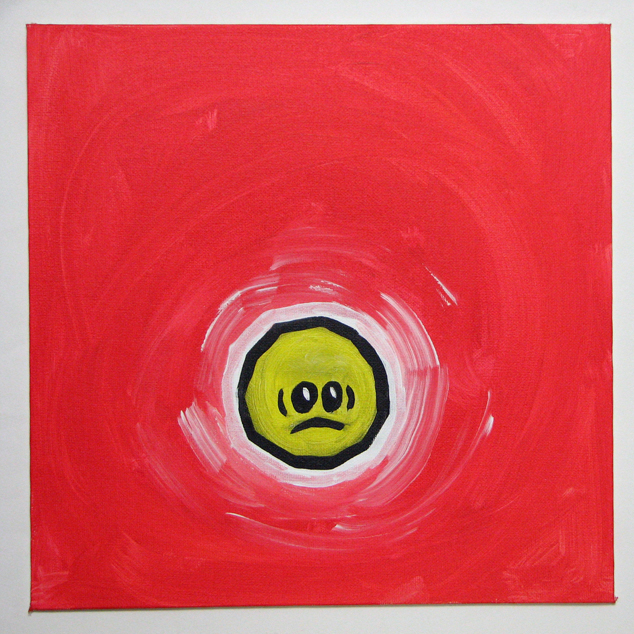I was saddened to see tweets today from a guy who says he was fired over his depression.
Mood music:
He tweeted:
“We’re a small company, there’s no room for passengers.” – My boss after I told her about my depression and how I’m getting help with it.
Then, another tweet:
I just had a phone call from my boss. I’ve been fired. Wow.
He also shared the termination letter he received:
“Dear (name removed):
It is with regret that we must terminate your contract with COMPANY NAME, due to non-performance. As discussed with your line manager, ***** ******, on several occasions, there has been a lack of activity resulting in lack of business and an unacceptable future business pipeline.
We do not take these decisions lightly but as you admitted yourself, you have been unable to pick up the phone and make calls lately and, as a small business, we cannot continue to pay a salesman a salary when no sales are forecast.
You are due one month’s notice as per your Contract of Employment and so will be paid up until 14th February 2012. This will be paid into your bank account on the 26th January (for January) and the balance on the 14th.
As of today you will be on garden leave and not expected to attend the office nor contact clients or candidates.”
A few thoughts:
If he did his job well and the boss couldn’t handle the fact that he has a mental illness, that’s an outrage he should fight tooth and nail. I wrote about such a case a few months ago in a post called “The Mental Illness Stigma That Won’t Die, Part 2.”
My tirade was inspired by this comment posted on the LinkedIn NAMI group discussion board:
I LOST MY JOB AS DIRECTOR – COMMUNICATIONS FROM A REGIONAL CHAMBER OF COMMERCE AFTER DISCLOSING MY 30 YEARS OF LIVING AND WORKING WITH BIPOLAR IN DEC. 2009.
Now after trying to find another job, I applied for SSDI. I just got rejected with a letter saying,”The medical evidence in your file shows that your condition does cause restriction in your ability to function, however, while your condition prevents you from doing previous jobs, you still have the ability to do unskilled work.”
I was diagnosed with bipolar in 1980, have bouts of depression, social anxiety, migraines, gerd and visable essential tremors in my hands and legs. I cannot stand unsupported for more than a few minutes and the tremors make me not want to leave my home and when I do anxiety worsens them. I can take medication to calm the tremors but those meds also negatively effect my memory, errors, and cognitive abilities.
I know most people get rejected but I am almost 60 and have worked in public marketing communications at managerial levels since 1984. What should I do?
I felt I needed to disclose as the work was socially demanding and my tremors showed.
I felt in disclosing that especially a Chamber of Commerce would be somewhat more understanding. Instead they became hostile and took away my startegic job duties and bumped me down to a typist.
The question I have is this: If someone loses their ability to do their job because of heart disease, a terrible injury or cancer, do they get dropped cold by their employer? Do they get treated in a hostile manner? Not from my experience.
I’ve known many people who developed a disease or got in an accident, and none lost their jobs. Their seat simply stayed empty and, in some cases, temps were brought in to do their work until they either recovered or resigned. They were treated with support.
If this woman did her job admirably for many years and just recently hit a period of intensified mental illness, she should be treated like the cancer or heart patient. To fire her because she’s “gone crazy” is, in my opinion, unacceptable.
These stories ratchet up the fear level for those suffering from depression, OCD, bipolar disorder and the like. It proves to the sufferer that mental illness is still viewed as a less-than-legitimate illness, something that’s more a figment of the sufferer’s imagination.
Many good people have died because of mental illness. They were ashamed and afraid to get help because of the stupid notion that they are somehow crazy and either need their ass kicked or be institutionalized. So they try to go it alone and either end up committing suicide because their brains are knocked so far off their axis or they die from other diseases that develop when the depression forces the sufferer into excessive eating, drinking, starvation, drug taking or a combination of these things.
There’s also the ridiculous idea that a person’s workmanship becomes valueless when they’re in a depression. If someone misses work because they have cancer, they are off fighting a brave battle. They are fighting a brave battle, of course. No doubt about it.
But depression? That person is slacking off and no longer performing.
Now that I’ve said all that, let’s look at the other side.
In the case of this just-fired fellow, the boss claimed he was not doing his job and that revenue was being lost. If his illness prevented him from doing his job, that does put the employer in a bind. I get that. If his condition has suddenly nosedived and it prevents him from doing what he used to do, that’s a tragedy.
I do believe that people like us have a responsibility to prove we’re up to the challenges we seek.
Beth Horne, president and CEO of The Horne Agency, a marketing and advertising firm, has lived this from both sides, as the mental illness sufferer and as an employer. She wrote the following via the United States Mental Health Professionals group on LinkedIn:
I was diagnosed with Bipolar 2 twenty years ago. I received treatment and have been stable for years, thanks to excellent therapy, medication and education. Before returning to school for my PhD in Psychology, I worked in Marketing/Advertising for several large media companies before opening my own advertising agency. I was open about my diagnosis with my employers during my interview process, and it never hindered me from being hired. In fact, I never interviewed for a job I did not get, due to my work record, resume and references.
I think that my work performance more than made up for any issues I may have had regarding my disorder, such as sometimes having periods of depression or getting a bit manic when life changes occurred. I worked very hard NOT to let them affect my work performance or reduce my ability to generate revenue for my company.
However, I have been in management with these companies and had employees with mental issues who did not take care of themselves and they became liabilities to the company and had to be let go. Some would refuse to take their medication and attend therapy, some would miss work continually or be so over-medicated they were in a constant stupor, unable to perform their duties. I had one woman who came into the office in such a manic state I had to ask her to stay in her office until she could have her husband take her to her doctor, and to please refrain from taking any sales calls, for fear of her ruining client relations.
If someone knows they have a mental issue/disorder, it is a personal choice whether or not to accept their diagnosis and get help and follow their treatment. Is this always easy? NO! But if they are to function in the work environment, it is their responsibility to do anything and everything in their power to stay as healthy as possible. If this is not possible for them, then it is time to look into disability.
Employers need to understand that not everyone with a diagnosis of a mental illness is like another…there are people with bipolar disorder who have little problem going on with their daily routine with just therapy and medication, while others find it impossible to blend into the work environment. I use bipolar disorder as just one example, but there are many others, as we all are aware. I have a mother who has a mild form of OCD and is a supervisor at a hospital. What better profession could there be for someone who will always be strict about following rules, cleanliness and excellent patient care than an RN? Or like my brother, who also has the same issue, works in IT?
Both are successful and well-adjusted, and their coworkers probably have no idea they have any mental problems whatsoever. So before they judge and dismiss a potential employee because of ignorance, they should look at the person as a whole and not just their diagnosis.
Like Beth, I’ve been judged by my workmanship and not by mental health issues I’ve disclosed. That has been the case for me in every job I’ve ever had. I do my current job well, and that’s all my bosses care about. I’m very fortunate.
There have also been times in past jobs where my workmanship suffered because I wasn’t taking care of myself. I was refusing to even consider therapy or medication, and I sank lower and lower.
I was reinforcing the stigma instead of breaking it.
Today I succeed because I refuse to let the struggles render me useless. I fight harder and longer, and I never give up.
But if you’re in the grip of deep depression, that’s not always possible. I feel for people in that situation, and pray that they’ll come through this better than before.











